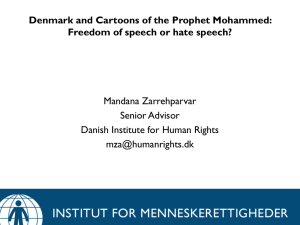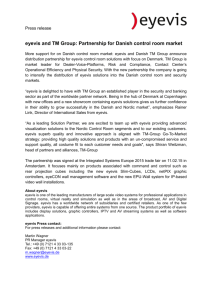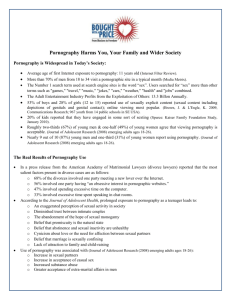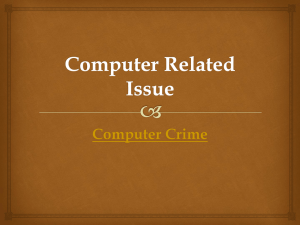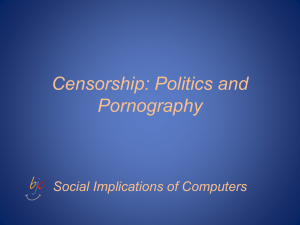INFOSHEET IDEA: Have various views on the Muhammad cartoons
advertisement
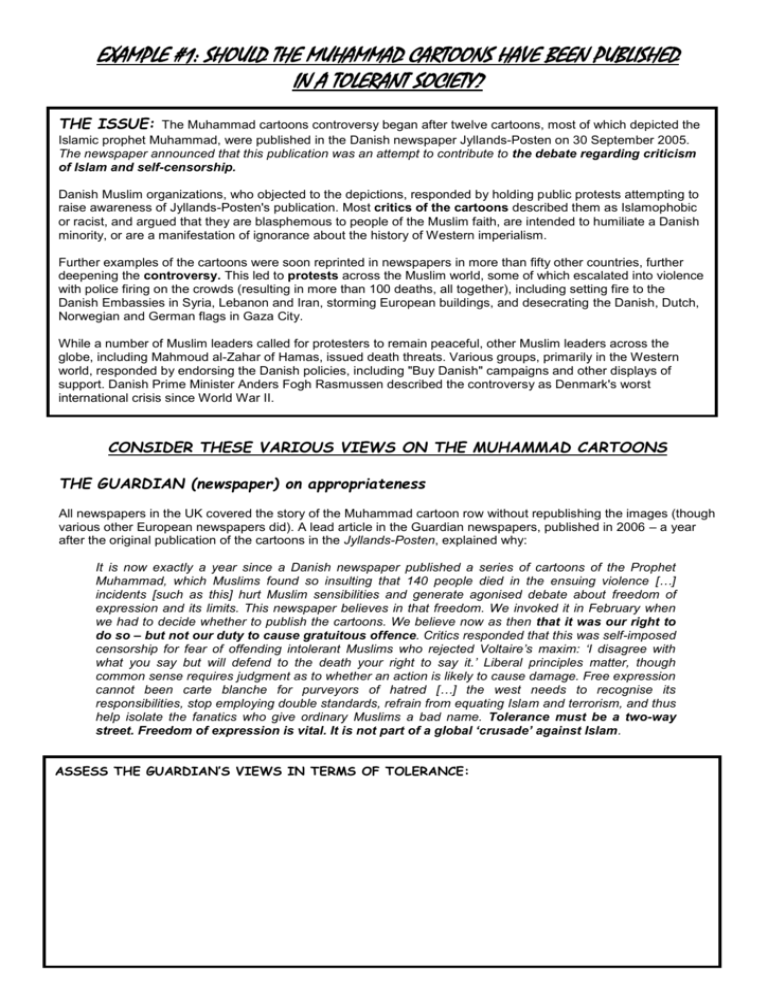
EXAMPLE #1: SHOULD THE MUHAMMAD CARTOONS HAVE BEEN PUBLISHED IN A TOLERANT SOCIETY? THE ISSUE: The Muhammad cartoons controversy began after twelve cartoons, most of which depicted the Islamic prophet Muhammad, were published in the Danish newspaper Jyllands-Posten on 30 September 2005. The newspaper announced that this publication was an attempt to contribute to the debate regarding criticism of Islam and self-censorship. Danish Muslim organizations, who objected to the depictions, responded by holding public protests attempting to raise awareness of Jyllands-Posten's publication. Most critics of the cartoons described them as Islamophobic or racist, and argued that they are blasphemous to people of the Muslim faith, are intended to humiliate a Danish minority, or are a manifestation of ignorance about the history of Western imperialism. Further examples of the cartoons were soon reprinted in newspapers in more than fifty other countries, further deepening the controversy. This led to protests across the Muslim world, some of which escalated into violence with police firing on the crowds (resulting in more than 100 deaths, all together), including setting fire to the Danish Embassies in Syria, Lebanon and Iran, storming European buildings, and desecrating the Danish, Dutch, Norwegian and German flags in Gaza City. While a number of Muslim leaders called for protesters to remain peaceful, other Muslim leaders across the globe, including Mahmoud al-Zahar of Hamas, issued death threats. Various groups, primarily in the Western world, responded by endorsing the Danish policies, including "Buy Danish" campaigns and other displays of support. Danish Prime Minister Anders Fogh Rasmussen described the controversy as Denmark's worst international crisis since World War II. CONSIDER THESE VARIOUS VIEWS ON THE MUHAMMAD CARTOONS THE GUARDIAN (newspaper) on appropriateness All newspapers in the UK covered the story of the Muhammad cartoon row without republishing the images (though various other European newspapers did). A lead article in the Guardian newspapers, published in 2006 – a year after the original publication of the cartoons in the Jyllands-Posten, explained why: It is now exactly a year since a Danish newspaper published a series of cartoons of the Prophet Muhammad, which Muslims found so insulting that 140 people died in the ensuing violence […] incidents [such as this] hurt Muslim sensibilities and generate agonised debate about freedom of expression and its limits. This newspaper believes in that freedom. We invoked it in February when we had to decide whether to publish the cartoons. We believe now as then that it was our right to do so – but not our duty to cause gratuitous offence. Critics responded that this was self-imposed censorship for fear of offending intolerant Muslims who rejected Voltaire’s maxim: ‘I disagree with what you say but will defend to the death your right to say it.’ Liberal principles matter, though common sense requires judgment as to whether an action is likely to cause damage. Free expression cannot been carte blanche for purveyors of hatred […] the west needs to recognise its responsibilities, stop employing double standards, refrain from equating Islam and terrorism, and thus help isolate the fanatics who give ordinary Muslims a bad name. Tolerance must be a two-way street. Freedom of expression is vital. It is not part of a global ‘crusade’ against Islam. ASSESS THE GUARDIAN’S VIEWS IN TERMS OF TOLERANCE: LARS VON TRIER on provocation Danish film director Lars Von Trier is famous for controversy and provocation. His films include Anti-Christ (2009) which involves Charlotte Gainsbourg's character simply referred to as "She" – pounding her husband's genitals with a brick, drilling a hole through his leg, inserting an iron bar though it, and attaching the bar to a heavy iron wheel. Having tortured her husband, “She” then turns on herself, and, in the scene that so enraged the critics at Cannes earlier in the year, cuts off her clitoris with a pair of rusty scissors - all this in graphic, lingering detail. The Idiots (1998) focused on a group of young Danes who pretended to be mentally retarded in order to shock mainstream society out of its supposedly patronising complacency. Despite its questionable taste and the inclusion of a grimly realistic orgy scene and a brief glimpse of hardcore penetration, it has since made it on to the Danish Ministry of Culture's canon of great Danish films. Von Trier responded by saying the gesture was "like something the Nazis would have done". Is he never satisfied? "I am Danish!" he retorts, laughing. "In Denmark, there is a great tradition of provocation. In the 1960s, some people called themselves 'Provos' - provocateurs. You could say I am in this tradition but not really. It is not an unimportant thing to do but it is also not enough if one only sets out to provoke. It is almost too easy so, of course, it is not really for me. One of my techniques, is to defend an idea or a view that is not mine. So, for instance, it could be that I make a film about the human side of Hitler. That would be very interesting to me. I mean, to try to defend Hitler's actions," he says, excitedly, "this is a difficult one even for me." When the giggles have subsided, I ask him if, underneath all the provocation and liberal-baiting, he is, in fact, a political filmmaker. "Perhaps. You know, I really do have some morals. I do actually care about people. And I do have a political standpoint." Could he define it? "Well, my father said that the way in which a country treats its guests is the way you can judge its moral life, its moral state. Right now, this country is in a terrible state. It is so rightwing and against the minorities. You know about these cartoons, of course?" he asks, referring to the row that blew up after a Danish newspaper published insulting drawings of Muhammad. "This is a rightwing paper who pretend to be for free speech when they just wanted to do damage to a very weak minority in this country. I'd never do a thing like that. If you want to provoke, you should provoke someone who is stronger than you, otherwise you are misusing your power." ASSESS LARS VON TRIER’S VIEWS IN TERMS OF TOLERANCE: MUNIRA MIRZA on social cohesion Munira Mirza is the co-author of the report ‘Living Apart Together’. She argued that the response of the UK media reflected ‘a special sensitivity to the issue… because it is about Islam.’ She argues that where ‘respect for diversity’ is in conflict with freedom of thought and expression it is essential, in a free society, that we should safeguard freedom of thought. In her view, passing laws against the incitement to religious hatred is indicative that, at present, the respect for diversity agenda is winning the battle against freedom of speech. She says: Media outlets have very little problem satirising Christianity – just consider BBC2’s defiant showing of “Jerry Springer the Opera”, despite heated protests by Christian groups, Muslims are being treated as a special group, seen as worthy of more protected from criticism than other groups because of their apparent victim status [.] Muslims are not banned from practising their religion but nor should they be shielded from criticism by others, however hurtful they might feel it is [.] Press freedom is the foundation of a free society [.] Unless we stand up for freedom of speech, we are unable to engage freely and hold belief systems – of all kinds – to account [.] Censorship in the West bolsters the moral authority of leaders in the Middle East to censor their own citizens. Indeed, the religious leaders in Saudi Arabia and Palestine have been opportunistic in using the story as a way of galvanising support and reinforcing the view that only they can protect Muslims from victimisation. [S]ympathetic lefty anti-racists who believe censorship will protect Muslims are actually missing the point. Many Muslims want the same freedoms as everyone else to debate, criticise and challenge their religion. ASSESS MUNIRA MIRZA’S VIEWS IN TERMS OF TOLERANCE: EXAMPLE #2: SHOULD PORNOGRAPHY BE ALLOWED IN A TOLERANT SOCIETY? JS MILL on free expression of apparent indecencies In ‘On Liberty’, John Stuart Mill tackles a question concerning indecency where ‘the instigator derives a personal benefit … to promote what society and the State consider to be an evil.’ Should this be tolerated or not? Mill specifically tackled the question of: ‘Fornication, for example, must be tolerated… but should a person be free to pimp?’ o o Mill argued that: o An act should either be consistently permitted or consistently prohibited. And since the act of fornication is admissible and not against the law, the act of pimping – of selling sex – should also be admissible. o In which case, since such matters concern individuals, society has no business to judge it wrong. o If society wishes to dissuade the pimp, it must also accept that the pimp should be free to persuade people towards his own business interests. o Society can only go so far as compel them to ‘conduct their operations with a certain degree of secrecy and mystery, so that nobody knows anything about them but those who seek them’. (I.e. try to convince pimps to be discreet) o o o o o Applying this argument to pornography it seems that: society cannot judge pornography to be bad; cannot restrict an industry that promotes acts considered to be acceptable in private; cannot prevent the pornographer from persuading people to participate in or consume pornography. However, society can inform those engaged in pornography that their actions are not especially welcome and can place some restrictions on the distribution of pornography. Q. Do you agree with Mill’s reasoning here? In response, the eminent legal theorist Sir James Fitzjames Stephens in his essay ‘Liberty, Equality, Fraternity’ (1874) ridiculed Mill arguing that the State’s role is to maintain public morality: I do not think the State ought to stand bandying compliments with pimps. ‘Without offence to your better judgement, dear sir, and without presuming to set up my opinion against yours […] I am far from expressing absolute condemnation of an experiment in living from which I dissent (I am sure that mere dissent will not offend a person of your liberality of sentiment) but still I am compelled to observe that you are not altogether unbiased by personal considerations in the choice of the course of life which you have adopted (no doubt for reasons which appear to you satisfactory, though they do not convince me). I venture, accordingly, though with the greatest deference, to call upon you not to exercise your profession’. o Stephens’ point is that: individuals, as social creatures, do have an interest in the thoughts, feelings and conducts of others and, in the case of indecency or vice, the moral force of public opinion should apply. In short, we should not tolerate it. Q. Do you think moral conventions are reason enough to be intolerant of pornography? MACKNINNON against pornography for its social inequality. Catherine Mackinnon argues that freedom of expression clashes with social equality and with legal equality. In ‘Only Words’ (1993) she presents the view that freedom of speech is not equal, that some have more power to speak than others and that the protection of the freedom of speech of pornographers (mainly men) maintains their dominance at the expense of their relatively powerless victims (mainly women). o In ‘Only Words’ MacKinnon envisages a society, without pornography, in which equality is a fact and in which ‘sex between people and things, human beings and pieces of paper, real men and unreal women, will be a turn off’ and pornography will belong in museums. In an interview following the publication of her book ‘Are Women Human?’ MacKinnon argues: ‘Pornography affects people’s belief in rape myths. So for example if a woman says ‘I didn’t consent’ and people have been viewing pornography, they believe rape myths and believe the woman did consent no matter what she said. That when she said no, she meant yes. When she said she didn’t want to, that meant more beer. When she said she would prefer to go home, that means she’s a lesbian who needs to be given a good corrective experience. Pornography promotes these rape myths and desensitises people to violence against women so that you need more violence to become sexually aroused if you’re a pornography consumer.’ Are the claims in the above quote substantiated? Consider this challenge: Concerning media violence in general, the American Psychological Association do not claim media violence causes aggressive or violent behaviour. Instead the consensus among the scientific community is that there is a correlation between the two. In his book The Case for Television Violence, communication professor Jib Fowles points out that “correlational studies can never escape the fact that correlations are not causes.” He cites researcher David Buckingham, who notes that “one may well discover that children who are violent watch a lot of television violence, but this does not prove that violent television causes real-life violence.” Consider this support: In the meantime MacKinnon, a lawyer and academic, prefers to fight pornography through the law by offering a civil remedy to people who can prove they have been harmed. o For example, represented Linda Susan Boreman (aka, Linda Lovelace) from 1980 until her death in 2002 – Boreman claimed to have been coerced through violence into filming (i.e. raped on film) the enormously successful 1972 hardcore porn film ‘Deep Throat’. o She later denounced her pornography career, claimed that she had been forced into it by her sadistic first husband and for a while became a spokeswoman for the anti-pornography movement. An un-associated organisation www.thepinkcross.org aims to help female porn stars to leave the sex industry. The website has testaments from former porn stars to the hardships they did not realise they were getting into, and includes facts such as: 66% of porn performers have Herpes, a non-curable disease. 70% of sexually transmitted infections in the porn industry occur in females. 75%-90% of porn performers are prostituted women. o o MacKinnon’s views have prompted numerous hostile responses. Some post-feminists have accused her of exaggerating the extent to which women are victims are promoting a culture of powerlessness amongst women. Others have accused her of being a fanatical exponent of political correctness and of advocating a climate on university campuses in which freedom of speech and various academic freedoms are inhibited. Q. What do you think – should pornography be tolerated?
